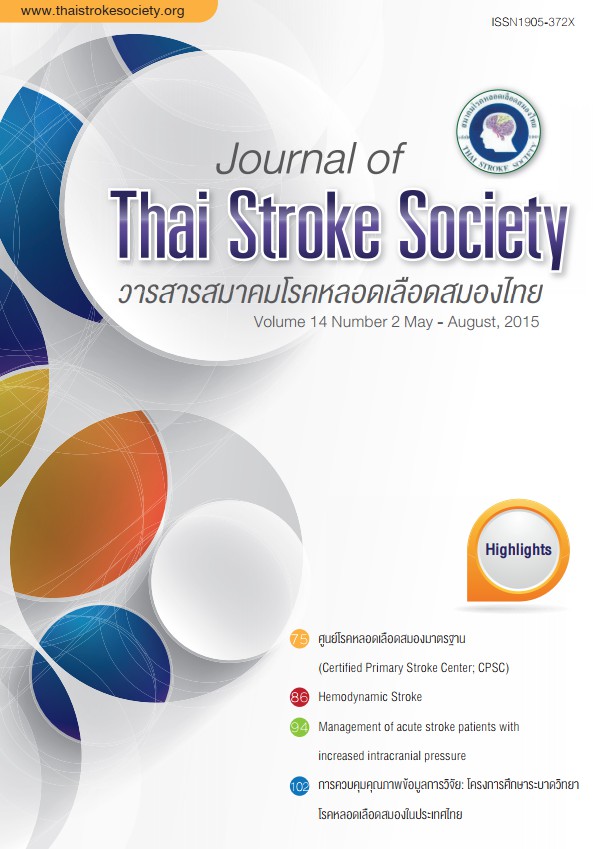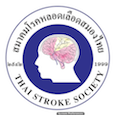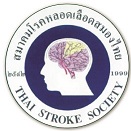Research Data Quality Control: The Thai Epidemiologic Stroke (TES) Study
Keywords:
Quality control, Health survey, StrokeAbstract
Research data quality control is a process to ensure that collected data are high quality and reliable. Therefore, the Thai Epidemiologic Stroke (TES) Study has implemented this process to every step of the study. This article presented some parts of how to control the data quality of baseline health survey, that is, how to control staff performances, quality of blood test data and quality of body weight/height data. The analyses showed that baseline survey data were highly reliable. The overall staff performance errors were 1.2% and during the survey period, the percentage of the errors decreased over time. Bland-Altman plot revealed that beyond point (mean ± 1.96 SD.) was 5.9%, 3.1%, 3.8%, 4.6%, and 4.7% for glucose, triglyceride, cholesterol, HDL, and LDL, respectively. For calibration of weight measurement device with standard weights, the error was not beyond ± 0.2 kilograms. However, calibrating with standard steel rule, more than 50% of number of height measurement had an error of beyond ± 0.2 centimeters, especially at 100 centimeter level. These three parts of data quality control analyses provided information for early problem detection and solving which lead to high research data quality
References
Thailand: Thai Epidemiologic Stroke (TES) Study. J Med Assoc Thai 2011; 94:427-436.
Samsem M, Hanchaiphiboolkul S, Puthkhao P, Tantirittisak T, Towanabut S. Appropriate body mass index and waist circumference cutoffs for middle
and older age group in Thailand: data from 19,621 participants from Thai Epidemiologic Stroke (TES) Study. J Med Assoc Thai 2012; 95:1156-1166.
Hanchaiphiboolkul S, Suwanwela NC, Poungvarin N, Nidhinandana S, Puthkhao P, Towanabut S, et al. Risk of metabolic syndrome for stroke is not greater than the sum of its components: Thai Epidemiologic Stroke (TES) Study. J Stroke Cerebrovasc Dis 2013; 22:e264-e270.
Hanchaiphiboolkul S, Puthkhao P, Towanabut S, Tantirittisak T, Wangphonphatthanasiri K, Termglinchan T, et al. Factors predicting high estimated 10-year stroke risk: Thai Epidemiologic Stroke Study. J Stroke Cerebrovasc Dis 2014; 23:1969-1974.
World Health Organization. Surveillance of risk factors for noncommunicable diseases: Field manual (draft) . Geneva: 2002. Available at: http://www.who.
int/ncd/surveillance/surveillance_publications.htm.Accessed July 3,2003.
Tolonen H, Kuulasmaa K, Laatikainen T, Wolf H. European Health Risk Monitoring (EHRM); Recommendation for indicators, international collaboration,
protocol and manual of operations for chronic disease risk factors surveys. Helsinki: 2002. Available at: http://www.thl.fi.publications/ehrm/product2/
product2.pdf. Accessed July 2,2003.
National Heart Lung, and Blood Institute of the National Institutes of Health. ARIC Atherosclerosis risk in communities study: Manual 12 Quality assurance
and quality Control. Chapel Hill: 1989. Available at: http://www.cscc.unc.edu/aric/visit/Quality_Assurance_and_Quality_Control.1_12.pdf. Accessed
July 15,2003.
Bland JM, Altman DG. Statistical methods for assessing agreement between two methods of clinical measurement. Lancet 1986; 1: 307-310.
Chan YH. Biostatistics 104: Correlation analysis. Singapore Med J 2003; 44: 614-619.
Downloads
Published
How to Cite
Issue
Section
License
ข้อความภายในบทความที่ตีพิมพ์ในวารสารสมาคมโรคหลอดเลือดสมองไทยเล่มนี้ ตลอดจนความรับผิดชอบด้านเนื้อหาและการตรวจร่างบทความเป็นของผู้นิพนธ์ ไม่เกี่ยวข้องกับกองบรรณาธิการแต่อย่างใด การนำเนื้อหา ข้อความหรือข้อคิดเห็นของบทความไปเผยแพร่ ต้องได้รับอนุญาตจากกองบรรณาธิการอย่างเป็นลายลักษณ์อักษร ผลงานที่ได้รับการตีพิมพ์ในวารสารเล่มนี้ถือเป็นลิขสิทธิ์ของวารสาร





